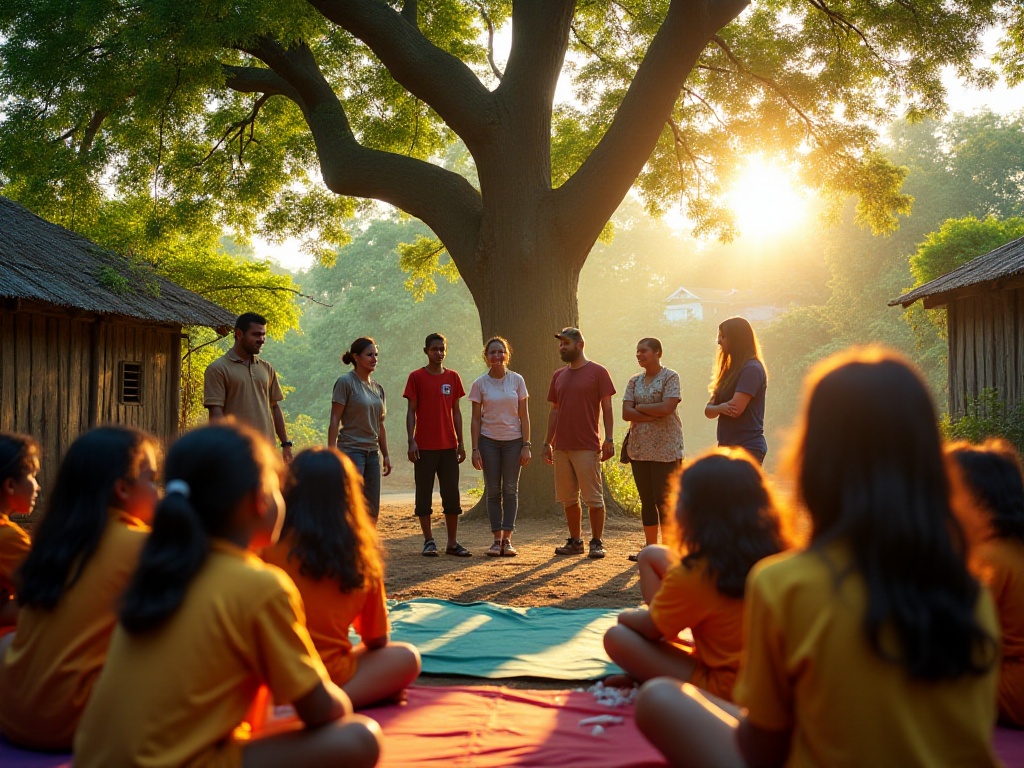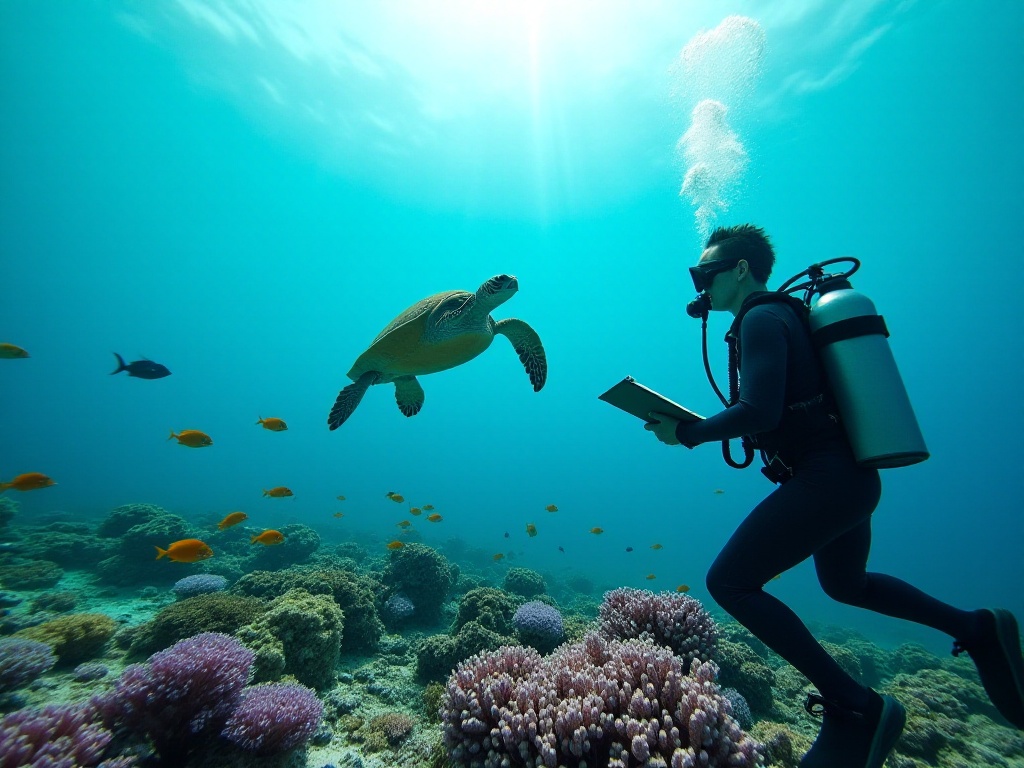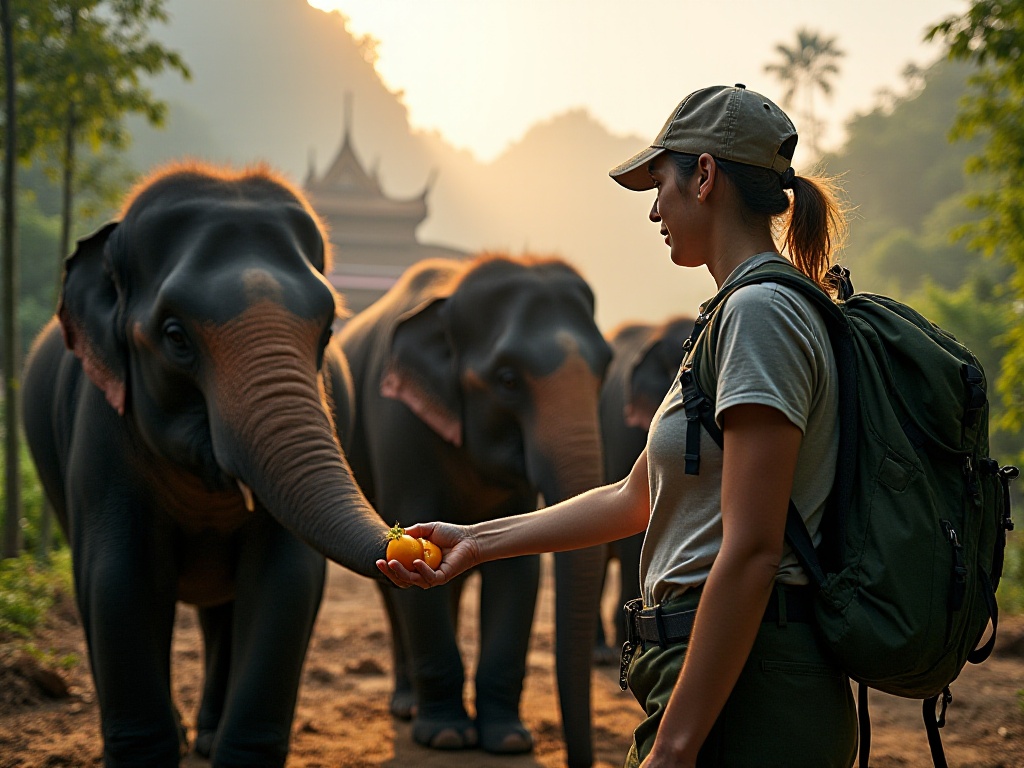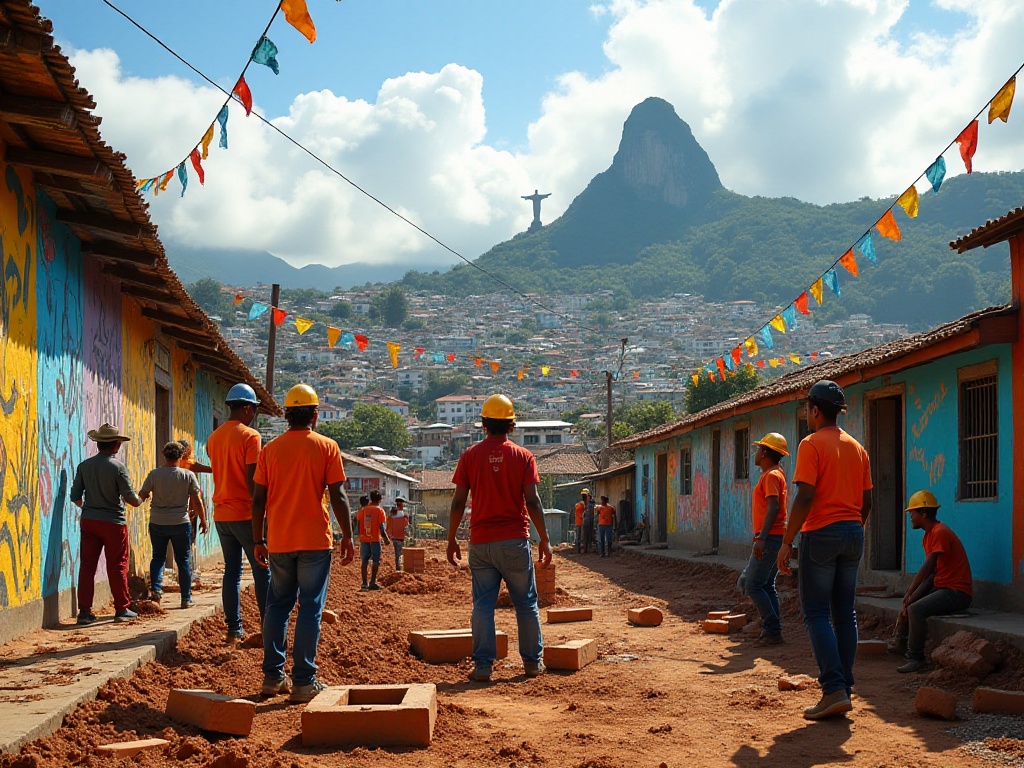I still remember my surprise when I first heard about volunteer travel. I was scrolling through short videos when I saw a blogger sharing her experience at an elephant sanctuary in Chiang Mai, Thailand. In the footage, she and other volunteers were caring for elephants and cleaning the environment. Although they were tired every day, their faces radiated genuine smiles.
That scene left a deep impression on me. Before that, my understanding of travel was limited to "taking photos and posting on social media." After watching that video, I began to wonder: could travel have more possibilities? So I started to learn more about volunteer travel.
You might not believe it, but I was quite nervous about my first volunteer travel experience. I worried about not being able to adapt. But after actually experiencing it, I discovered this way of traveling was amazing! At the elephant sanctuary in Chiang Mai, I met volunteers from all over the world - some were college students, some were office workers, and others were retired teachers. Despite their different backgrounds, everyone came together for the same goal: to do something for the world in their own way.
Many people ask me, what exactly is volunteer travel? It's actually simple - it's combining travel with volunteer service. But it's not just tourism plus doing good deeds; it's an immersive travel experience.
Imagine staying in a place for weeks or even months instead of just a few days. You work and live with locals every day, understanding their culture and customs, sharing their joys and sorrows. This experience is much more profound than ordinary tourism.
According to the latest data from the United Nations World Tourism Organization, the number of people participating in volunteer travel exceeded 2 million in 2023, a 35% increase from 2019. This number has rapidly rebounded after the pandemic, especially in Asia, where growth has been remarkable at over 50%.
This growth is no coincidence. Young people today increasingly value the meaning and worth of travel, no longer satisfied with simple check-list tourism. They hope to gain more life experience through travel while contributing to society.
Moreover, with the development of the internet, accessing volunteer travel information has become increasingly easy. The emergence of various volunteer travel platforms and apps has greatly lowered the barriers to participation. Now you can find suitable volunteer projects anytime you want.

When it comes to types of volunteer travel projects, they are truly diverse. From educational support to environmental protection, from cultural preservation to community development, they cover almost every field you can think of.
Educational support projects are the most popular, accounting for about 40% of all volunteer projects. I participated in an English teaching project in Cambodia, and that experience was unforgettable. Every morning, local children would wait outside the classroom early, excitedly greeting us with "Hello teacher" when we arrived. Although their English wasn't very standard, their enthusiasm and eagerness to learn were truly touching.
In the classroom, we not only taught English but also organized various fun activities. For instance, once we played role-playing games using simple English vocabulary, and the children had so much fun that even shy students actively participated. Watching them naturally use English to communicate during the games gave an indescribable sense of achievement.
Marine conservation projects are also particularly attractive. On Pulau Redang in Malaysia, I witnessed the work of volunteers firsthand. Early every morning, they would put on diving equipment and go underwater to carefully record coral growth conditions and track sea turtle movement patterns. Sometimes they would also clean up underwater garbage to protect the marine environment.
Data from 2023 shows that marine conservation volunteer projects alone contributed over 1 million hours of work to marine ecological protection. Behind these hours are the sweat and dedication of countless volunteers. For example, I knew an Australian girl who stayed on Pulau Redang for three whole months, persistently conducting underwater surveys every day. It's this kind of persistence that makes our oceans more beautiful.
Beyond these, there are cultural heritage protection projects. In an ancient temple restoration project in India, I met a group of architecture students from around the world. They applied their professional knowledge to help restore damaged architectural components while learning local traditional building techniques. This transmission of knowledge and cultural exchange is the unique charm of volunteer travel.
Wildlife protection projects are also popular. In African wildlife reserves, volunteers participate in animal rescue and habitat restoration work. Although the working conditions are tough, being able to closely interact with these rare animals and understand their living habits is a rare experience for many people.
There are also community development projects, such as rural construction projects in Nepal. Volunteers help local residents build roads and improve water supply facilities while also teaching them practical skills. Although these projects might not be as thrilling as wildlife protection, they are significant in improving local people's quality of life.
Medical aid projects require professional backgrounds. I know a medical student who participated in a two-month medical volunteer service in Africa. There, she not only applied her professional knowledge to help patients but also learned many local traditional medical methods. This experience had a profound impact on her subsequent career development.

If you want to participate in volunteer travel, there are mainly two ways: individual independent participation and team participation. Each method has its unique advantages, and the key is to choose based on your own situation.
The biggest advantage of individual independent participation is flexibility. You can arrange your schedule entirely according to your own time and interests. According to global volunteer travel platform data, among volunteers who chose independent participation in 2023, 65% chose projects lasting 1-3 months. This timeframe allows you to deeply experience local life without being too lengthy.
When I first participated in a volunteer project independently, I chose to work at an environmental organization in Thailand for two months. It was indeed a bit challenging at first, having to arrange accommodation and solve daily life problems on my own. But it was precisely this independent living experience that taught me many things and helped me meet many like-minded friends.
Team participation is more suitable for beginners. With organizers arranging accommodation and activities uniformly, and teammates looking after each other, you can focus more on the volunteer service itself. Data shows that the satisfaction rate of volunteers participating in team projects reaches 92%. This number isn't surprising at all, as team projects usually have experienced leaders who can solve various problems promptly.
I've led several team volunteer projects, and each time I could see new volunteers transform from initial nervousness to gradually adapting and falling in love with this lifestyle. The mutual help and friendship within the team are often the most precious gains from volunteer travel.
Regardless of which method you choose, thorough preparation is important. This includes understanding project details, preparing necessary equipment, and being mentally prepared. I recommend first-time participants choose short-term projects, around two weeks, so it won't be too difficult even if you don't adapt well.

As someone who has experienced volunteer travel more than a dozen times, I want to share some practical experiences and advice.
First is project selection. This is really important because choosing the right project makes the entire experience wonderful. I suggest people choose based on their strengths and interests. For example, I particularly enjoy interacting with children, so I often participate in educational projects. Every time I see children progress with my help, that sense of achievement makes me especially happy.
If you're a medical professional, participating in medical aid projects might be more suitable. I know a nurse who worked at a rural clinic in Africa for three months, and although conditions were harsh, she said it was one of her most valuable life experiences.
Second is organization selection. This is also particularly important because good organizations can make your volunteer experience twice as effective with half the effort. I recommend choosing organizations with high reputation and good reviews. You can judge through several aspects:
First is the organization's history and scale. Organizations with longer establishment time and larger scale usually operate more standardly. Second is looking at previous volunteers' evaluations. It's easy to find relevant information online now, so read more about others' experiences and suggestions. Third is checking the organization's transparency, such as whether they disclose project fund usage information.
According to the International Volunteer Organizations Alliance survey, about 15% of volunteer projects have management issues or service quality problems. So be careful when choosing organizations. I once encountered a project that claimed to be educational support, but upon arrival found there was no teaching plan at all, just completely unstructured management.
Preparation work is also important. Besides basic daily necessities, you need to prepare clothing that complies with local cultural customs. For example, when volunteering at some religious sites, you might need to prepare long-sleeve clothes and pants. Additionally, it's recommended to learn some local language and culture beforehand, making it easier to integrate into local life.
Mental preparation is also essential. Volunteer travel isn't a vacation; you might encounter various challenges. Such as language barriers, adjusting to local conditions, cultural conflicts, etc. I recommend bringing enough patience and an open mindset, treating these challenges as opportunities for learning and growth.
Another important point is having the right attitude. Volunteer travel isn't about "saving the world" but about learning and exchanging. While we give, we're also gaining knowledge and experience. Maintaining a humble and respectful attitude is key to truly integrating into the local community.

The development prospects for volunteer travel are very broad. With the deepening of globalization, more and more people are starting to pay attention to social responsibility and sustainable development. Experts predict that by 2025, the global volunteer travel market size will exceed 5 billion USD. Behind this number reflects people's pursuit of meaningful travel methods.
However, there are some issues that need attention in development. For instance, some projects are overly commercialized, neglecting their original public welfare purpose. According to surveys, about 30% of volunteer projects show this tendency. This reminds us to be vigilant when choosing projects and learn more about their true situation.
Technological development is also changing the form of volunteer travel. Some innovative project models have already emerged, such as long-term volunteer projects combined with remote work, or cultural exchange projects utilizing virtual reality technology. These new forms bring more possibilities to volunteer travel.
Sustainable development is an important trend for future volunteer travel. More and more projects are beginning to focus on environmental protection and community empowerment, no longer simply providing aid but helping local communities build sustainable development capabilities.
Cross-cultural exchange will also continue to deepen. In the context of globalization, volunteer travel has become an important channel for promoting cultural understanding. Through this method, people from different countries can truly understand each other's lives and cultures.
Have you thought about participating in volunteer travel? Or do you already have related experiences? Everyone's story is unique and worth sharing. After all, the meaning of travel isn't just about seeing a bigger world, but about contributing to this world in your own way.
Let's look forward to the beautiful future of volunteer travel together, and look forward to more people discovering another possibility of travel through this method. After all, when we give love and care, we often receive more than we give.
This isn't just a way of traveling, but a life attitude. It teaches us to see the world from different perspectives and spread warmth through actual actions. In this process, we not only help others but also become better versions of ourselves.
So, are you ready to start your volunteer travel? Believe that this will be an unforgettable life experience, waiting for you to explore and experience.
 Previous
Previous
